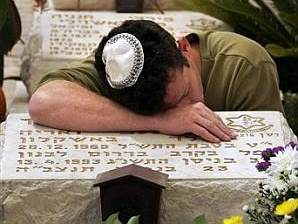Every Israeli secretly wants to be Indiana Jones. Archaelogy is the national pastime in Israel. Yet, archaeologists and their discoveries often find themselves at odd with traditional Jews.
Their finding put into questions foundational parts of faith like the accuracy of the Exodus from Egypt, and the details of the life of Abraham.
Putting aside these questions these questions of doctrine and history, I think archaeologists have a great deal to teach us about the meaning and living of faith. It is not so much in what they discover. It is in how they work.
1. Attention to detail: On my recent trip to Israel, we participated in a dig of ruins from 150 BCE, during the time of the Maccabees. We were digging through the equivalent of ancient garbage dump.
Yet, every shard of pottery; every bone; and every piece of charcoal was placed in a bucket and put aside for analysis. We have no idea what secrets they might unveil.
The great architect Mies Van Der Rohe once said “God is in the details.” Archaeology teaches the same truth.
2. Patience: The Maccabean dig has been going on for 12 years. It will continue for at least another decade. By then we might know something new and important. Archaelogy does not yield instant gratification. Neither does faith.
3. Separating what is important: After the shards of pottery are hauled up from the underground caves, archaeologists sift through each of them, searching for distinguishing features that can help make sense of daily life. Out of the hundreds of thousands of artifacts, they pick out what helps illustrate a broader truth.
The same process happens in the life of our spirits. We sift through our daily experiences, looking for what helps us make sense of our lives and purpose. Faith serves as a filter, helping us discern what is important and what is not.
4. Looking at the big picture: Archaeologists do not gather artificacts simply to record what happened. They gather in order to understand the forces and habits that shape human life.
They work within a framework of principles. Their basic principle is that what people leave behind helps us understand the way they lived. By understanding the way they lived, we better appreciate our own heritage, and we can find lessons that will help us sustain our culture and values
A life of faith also looks at the big picture. We do not engage in prayers or rituals just because some person or some book tells us to do so. We pray and act because we believe we are part of something larger than ourselves. We live within a bigger picture whose artist is God.
5. Faith that it matters: Archaeologists do not attend a special church. They are not generally looking to find proof of God. Yet, they share a faith that the past has meaning. They share a conviction that the remains of the past matter to the people in the present.
The archaelogist who led our dig shared his faith with passion. He has brought over two million non-archaelogists–mostly teenagers–on digs throughout Israel. He has devoted his life to helping people connect with the past.
This faith helps guide him through the hours of digging and sifting and recording seemingly mundane details. He knows they matter.
A similar conviction guides people of faith. We share what we love with others. We sacrifice our time, our energy and our resources for something larger than ourselves.
We know what we say and do matters, even if we cannot prove it to everyone’s satisfaction. Like archaeology, faith does not always show us something new. Rather, it reveals the hidden beauty all around us.
Rabbi Moffic’s New Book, Wisdom for People of All Faiths, is available now.


